Mingzhou Xie
Sustainable Online Reinforcement Learning for Auto-bidding
Oct 13, 2022
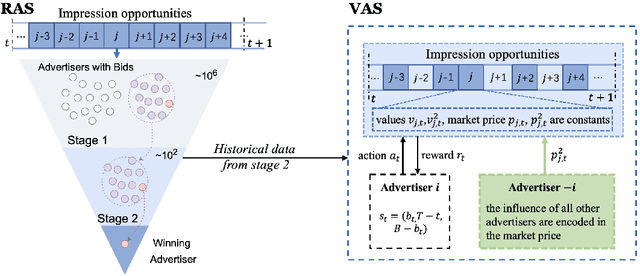
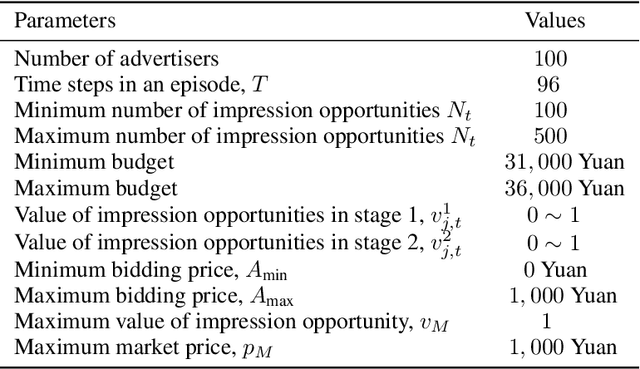
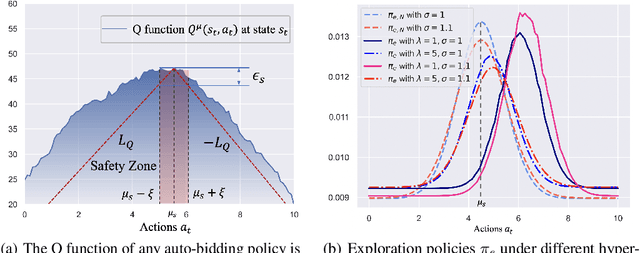
Abstract:Recently, auto-bidding technique has become an essential tool to increase the revenue of advertisers. Facing the complex and ever-changing bidding environments in the real-world advertising system (RAS), state-of-the-art auto-bidding policies usually leverage reinforcement learning (RL) algorithms to generate real-time bids on behalf of the advertisers. Due to safety concerns, it was believed that the RL training process can only be carried out in an offline virtual advertising system (VAS) that is built based on the historical data generated in the RAS. In this paper, we argue that there exists significant gaps between the VAS and RAS, making the RL training process suffer from the problem of inconsistency between online and offline (IBOO). Firstly, we formally define the IBOO and systematically analyze its causes and influences. Then, to avoid the IBOO, we propose a sustainable online RL (SORL) framework that trains the auto-bidding policy by directly interacting with the RAS, instead of learning in the VAS. Specifically, based on our proof of the Lipschitz smooth property of the Q function, we design a safe and efficient online exploration (SER) policy for continuously collecting data from the RAS. Meanwhile, we derive the theoretical lower bound on the safety of the SER policy. We also develop a variance-suppressed conservative Q-learning (V-CQL) method to effectively and stably learn the auto-bidding policy with the collected data. Finally, extensive simulated and real-world experiments validate the superiority of our approach over the state-of-the-art auto-bidding algorithm.
Dynamic Knapsack Optimization Towards Efficient Multi-Channel Sequential Advertising
Jun 29, 2020
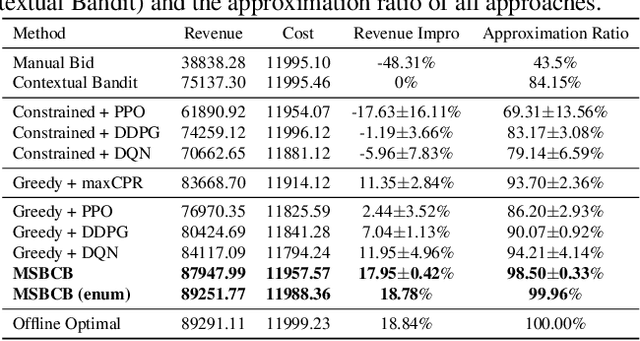
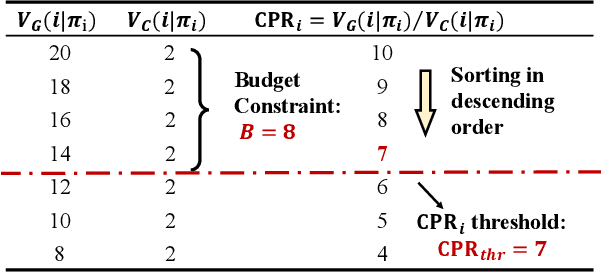

Abstract:In E-commerce, advertising is essential for merchants to reach their target users. The typical objective is to maximize the advertiser's cumulative revenue over a period of time under a budget constraint. In real applications, an advertisement (ad) usually needs to be exposed to the same user multiple times until the user finally contributes revenue (e.g., places an order). However, existing advertising systems mainly focus on the immediate revenue with single ad exposures, ignoring the contribution of each exposure to the final conversion, thus usually falls into suboptimal solutions. In this paper, we formulate the sequential advertising strategy optimization as a dynamic knapsack problem. We propose a theoretically guaranteed bilevel optimization framework, which significantly reduces the solution space of the original optimization space while ensuring the solution quality. To improve the exploration efficiency of reinforcement learning, we also devise an effective action space reduction approach. Extensive offline and online experiments show the superior performance of our approaches over state-of-the-art baselines in terms of cumulative revenue.
 Add to Chrome
Add to Chrome Add to Firefox
Add to Firefox Add to Edge
Add to Edge